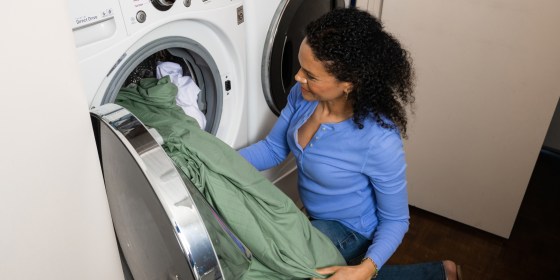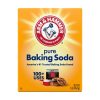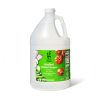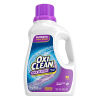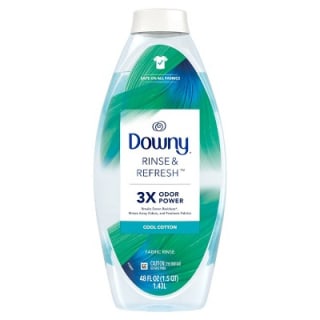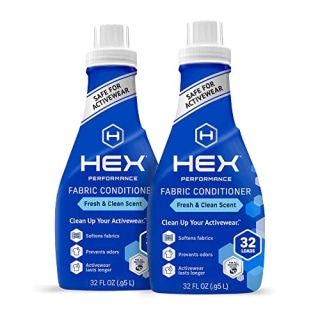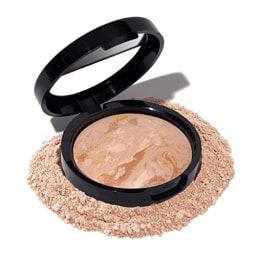Most of us have been following the same laundry routine for years — one we likely learned from our parents who learned it from their parents and so on. Plus, with so many products on the market geared toward making everything smell fresh and clean and feel soft to the touch, it can be tempting to bring them into your laundry room. But that might not be the best idea.
If you're on CleanTok — the cleaning side of TikTok — then you've probably seen videos explaining why you really shouldn't be using fabric softener. We decided to reach out to a few experts to see what they had to say. (Spoiler: you might want to skip down to alternatives.)
What is it? | What happens when you use it? | Tips for alternatives | Tips for using fabric softener safely | Items to avoid | Alternatives to try | FAQs | How we chose | Meet the experts
What is fabric softener?
At its core, fabric softener is a lubricant that coats your fabrics, giving it the “softening” effect we associate it with, explains James Copeland, director of technical services for Prism Specialties.
What happens when you use fabric softener?
Kellsie Zapata of Zapata’s Cleaning Services and Rechelle Balanzat, founder of Juliette, agree that people like to use fabric softeners for two main reasons: it makes their clothes soft and makes them smell good.
That said, Zapata says that while fabric softener can make your clothes smell good, it also coats your clothes in a waxy substance that can actually lead to a negative smell over time. That same substance can also impact your washing machine.
“Overuse of fabric softeners over time starts to build a film and deposits [that] start to slow down drain time. It can actually start to fill the drain lines and then you get other dirt, debris, grime and things from the clothes that we pick up from the environment [that] start to cling even more,” Copeland explains. “So you start to get these inefficiencies and these inefficiencies affect the operation of the equipment [and] shorten the life cycle of the equipment.”
Are there any alternatives to using fabric softener?
Balanzat says a simple baking soda and white vinegar mixture can achieve the same softness fabric softener promises. All you need is two cups of warm water, a half cup of baking soda and a half cup of white vinegar. Start by mixing the warm water and baking soda, then slowly pour in the white vinegar. “If you want it to smell good, you can add a few drops of essential oils,” she suggests.
Realistically, Balanzat says you only need a quarter cup of the mixture per load of laundry. She also advises putting the mixture into the fabric softener compartment in your machine instead of directly in the washer with the clothes. “You want it to be released during the rinse cycle,” she explains.
If you're concerned about an overbearing vinegar scent coating your garments, Zapata says that’ll only happen if you use too much vinegar in the mixture. “If you’re going to use it the wrong way, your clothes will come out smelling like vinegar,” she warns.
Tips for safely using fabric softener
We know that people who have been using fabric softeners for years, if not decades, aren’t likely to toss it away immediately after reading this — and that’s okay! If you want to keep using it, the pros advise being mindful of the amount you’re using while being mindful of keeping on top of routine maintenance on your machines to ensure longevity.
Zapata and Copeland offer similar tips for safely using fabric softener: always dilute it per the instructions on the bottle, don’t use it on the wrong items and make sure you’re cleaning your washing machine at least once a month. “That residue and that buildup will get in there and it can cause your washer to smell, so be sure to wash the machine that washes your clothes,” Zapata says.
Copeland also advises making sure you aren’t using softener too often. “Using it all the time stays in your clothes, and then it stays in your machines,” he says, which can not only shorten the life of your machine, but also your fabrics.
Items to avoid using fabric softener on
While Copeland says most packaging will tell you what not to use the specific fabric softener on, all of the experts shared the same items that are generally considered a no-no:
Children’s clothes. Unbeknownst to us (though it totally makes sense when you think about it), children’s clothes are made to be flame-retardant. Using fabric softener will reduce that effectiveness.
Towels and microfibers. The waxy residue from fabric softeners will clog the fibers on microfibers and towels, which will make it harder for the fabric to soak up liquid and reduce efficiency. If you really want to continue using fabric softener on towels, Balanzat recommends skipping it every three to four washes.
Athletic wear. Similar to towels, the residue will clog fibers and impair the moisture-wicking ability of your athletic wear. Zapata says fabric softener can even make your workout gear smell worse over time because of the wax that’s left behind. Jessica Ek, senior director of digital communications at the American Cleaning Institute, says you can look for alternatives specifically geared to athletic wear if you still want that fresh scent and soft-to-the-touch feel.
Zapata also advises against using fabric softener to clean surfaces in your house due to its flammability. “If you’re going to use it, use it correctly and just put it in your washer,” she says. “Don’t try to clean your home with it.”
Fabric softener alternatives
Most budget-friendly: Arm & Hammer Pure Baking Soda
- Great for cleaning
- Helps eliminate odors
- Multi-purpose
- Easy to make a mess
Size: 1 lb. | Key ingredients: Sodium bicarbonate
If you want to make the fabric softener alternative Balanzat suggests, this resealable 12-pound bag of baking soda will keep you covered for a while.
Multi-purpose: Good & Gather White Distilled Vinegar
- Versatile
- Helps eliminate odor
- Bottle may spill easily
Size: 128 oz. | Key ingredients: White distilled vinegar
For less than five dollars, you can get a gallon of white vinegar. That’s more than enough to make plenty of homemade fabric softener and still have enough to use for cooking!
Say goodbye to unwanted smells: OxiClean Odor Blasters Odor and Stain Remover
- Removes odors
- Leaves clothes smelling fresh
- Bottle may leak
Size: 50 oz. | Key ingredients: Citric acid, sodium chloride
Zapata also called this out as a way to make your clothes “smell good and fresh.” According to the brand, it was specifically formulated to be used on sweaty clothes, sweat stains and body odor.
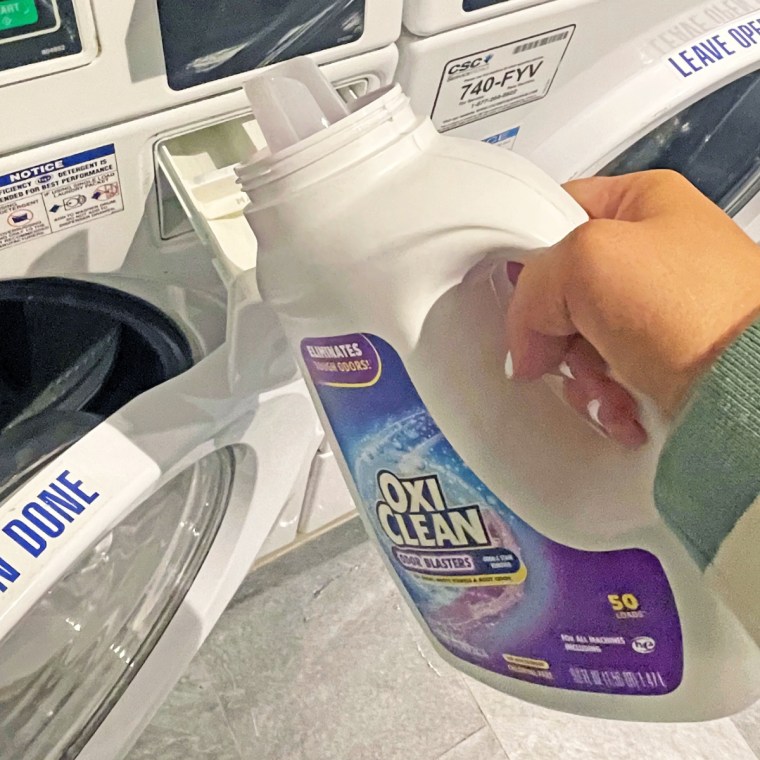
Super soft: Downy Rinse and Refresh
- Removes odors
- Makes laundry soft
- Mixed reviews on scent
Size: 48 oz. | Key ingredients: Citrus acid, sodium citrate
Zapata says this recent innovation from Downy is a suitable alternative to traditional fabric softener. "[If] you're someone who wants your clothes to smell really good, that’s a good option," she says. "It will not only make your clothes soft, it’ll make them smell good without the harm that fabric softener gives you." It comes in two scents: cool cotton pictured here and lavender.
For the athlete: HEX Performance Fabric Conditioner
- Smells nice
- Super soft
- Users saw mixed results
Size: 64 oz. | Ingredients: Surfactants, fragrance, preservatives
HEX Performance is a brand that creates laundry products specifically geared toward athletic wear, like Ek mentioned when looking for an alternative. According to the brand, this fabric conditioner is formulated to protect the moisture-wicking ability of fabrics and won't leave any residue behind.
Frequently Asked Questions
There isn’t really a straightforward answer to this, Balanzat admits. Instead she offers these parting words of advice: “If the garment is still meeting the intended needs…if it’s still working for you, it’s fine. Every day you’re learning about something that’s harmful or toxic so just take things with a grain of salt and recognize that even if it is toxic or harmful for the environment, people have been using it for years. And you as an educated consumer can make the best educated decisions for yourself and for your family.”
How we chose
The Shop TODAY team rounded up the best alternatives to fabric softener using a few methods: enlisting the recommendations of various cleaning and laundry experts, filtering our searches for top-rated products and combing through hundreds of user reviews.
Meet the experts
- James Copeland is the director of technical services at Prism Specialties in Livonia, Michigan. He recently spoke to TODAY.com about the right way to clean your Keurig.
- Kellsie Zapata is a deep cleaning specialist with Zapata's Cleaning Services based in Thomasville, Georgia.
- Rechelle Balanzat is the founder of Juliette based in New York City and has been in garment care for over 20 years.
- Jessica Ek is the senior director of digital communications at the American Cleaning Institute. She recently spoke to TODAY.com about the best methods to clean your microwave.

